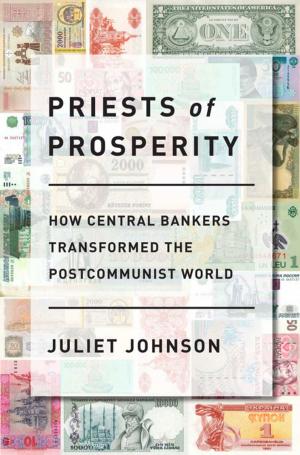In the Shadow of FDR
From Harry Truman to Barack Obama
Nonfiction, History, Americas, United States, 20th Century| Author: | William E. Leuchtenburg | ISBN: | 9780801462573 |
| Publisher: | Cornell University Press | Publication: | December 15, 2009 |
| Imprint: | Cornell University Press | Language: | English |
| Author: | William E. Leuchtenburg |
| ISBN: | 9780801462573 |
| Publisher: | Cornell University Press |
| Publication: | December 15, 2009 |
| Imprint: | Cornell University Press |
| Language: | English |
From review of previous editions:
"In the Shadow of FDR shrewdly sets forth the special cruelty of the dilemma Roosevelt's successors have all faced: 'If he did not walk in FDR's footsteps, he ran a risk of having it said that he was not a Roosevelt but a Hoover. Yet to the extent that he did copy FDR, he lost any chance of marking out his own claim to recognition.'"—New York Times Book Review
"A stimulating and original survey of the political impact of Franklin D. Roosevelt's image on his successors in the White House. Truman was resentful, Eisenhower suffered (in liberal eyes) by invidious comparison, Kennedy was ambivalent, Johnson celebratory, Nixon strangely admiring, Carter shallow in his use of FDR symbolism, and Reagan the first to turn his back on the New Deal."—Foreign Affairs
"William E. Leuchtenburg's close examination of FDR's presidential legatees has enabled him to demonstrate Roosevelt's enormous beyond-the-grave influence. In the Shadow of FDR is a fine, perceptive work that constitutes a valuable coda for New Deal studies. Several pertinent insights help to contribute to discussions of the role of personalities in politics. This book is a refreshing contribution to studies of the presidency."—American Historical Review
A ghost has inhabited the Oval Office since 1945—the ghost of Franklin Delano Roosevelt. FDR's formidable presence has cast a large shadow on the occupants of that office in the years since his death, and an appreciation of his continuing influence remains essential to understanding the contemporary presidency. This new edition of In the Shadow of FDR has been updated to examine the presidency of George W. Bush and the first 100 days of the presidency of Barack Obama. The Obama presidency is evidence not just of the continuing relevance of FDR for assessing executive power but also of the salience of FDR's name in party politics and policy formulation.
From review of previous editions:
"In the Shadow of FDR shrewdly sets forth the special cruelty of the dilemma Roosevelt's successors have all faced: 'If he did not walk in FDR's footsteps, he ran a risk of having it said that he was not a Roosevelt but a Hoover. Yet to the extent that he did copy FDR, he lost any chance of marking out his own claim to recognition.'"—New York Times Book Review
"A stimulating and original survey of the political impact of Franklin D. Roosevelt's image on his successors in the White House. Truman was resentful, Eisenhower suffered (in liberal eyes) by invidious comparison, Kennedy was ambivalent, Johnson celebratory, Nixon strangely admiring, Carter shallow in his use of FDR symbolism, and Reagan the first to turn his back on the New Deal."—Foreign Affairs
"William E. Leuchtenburg's close examination of FDR's presidential legatees has enabled him to demonstrate Roosevelt's enormous beyond-the-grave influence. In the Shadow of FDR is a fine, perceptive work that constitutes a valuable coda for New Deal studies. Several pertinent insights help to contribute to discussions of the role of personalities in politics. This book is a refreshing contribution to studies of the presidency."—American Historical Review
A ghost has inhabited the Oval Office since 1945—the ghost of Franklin Delano Roosevelt. FDR's formidable presence has cast a large shadow on the occupants of that office in the years since his death, and an appreciation of his continuing influence remains essential to understanding the contemporary presidency. This new edition of In the Shadow of FDR has been updated to examine the presidency of George W. Bush and the first 100 days of the presidency of Barack Obama. The Obama presidency is evidence not just of the continuing relevance of FDR for assessing executive power but also of the salience of FDR's name in party politics and policy formulation.















